Mouthrinse
- Apr 21, 2025
- 3 min read
Updated: Apr 23, 2025
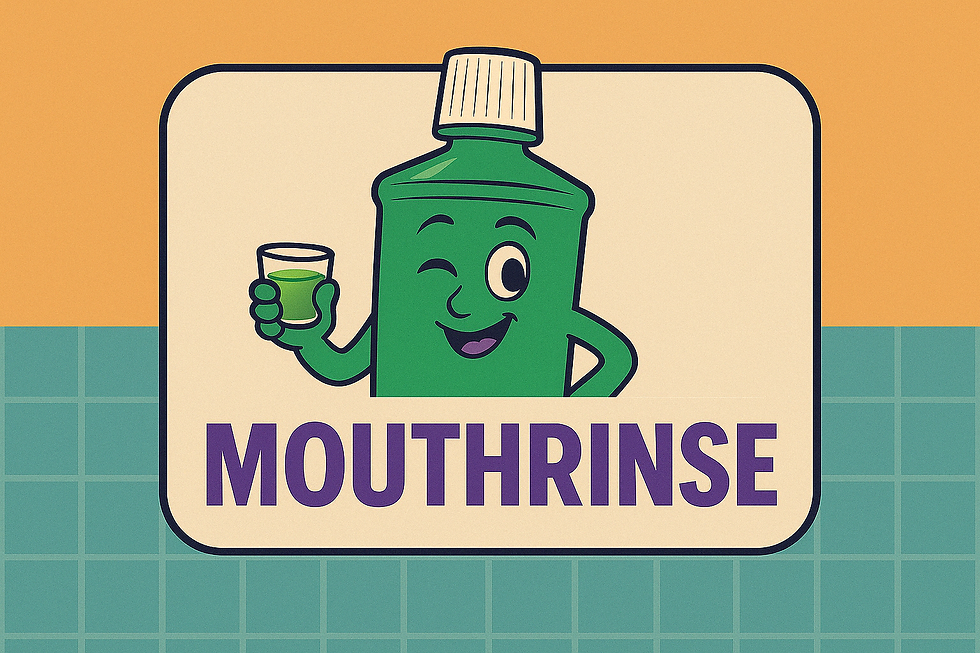
So, you're thinking about adding a swish to your routine? Welcome to the world of mouthrinses! Now, I've shared my own personal take on when I choose to use (or skip) mouthwash in my blog post here. But this guide? This is all about giving you the neutral lowdown so you can figure out what feels right for your smile.
Think of mouthrinse as the backup dancers or the special effects crew – they can add flair, but they aren't the main stars. That leading role belongs firmly to your trusty Toothbrush (Brenda says hi!) and Flossie, who do the essential heavy lifting of removing plaque and food debris. Mouthrinse isn't a must-have for everyone, but it can be a helpful addition for specific goals. The key is understanding if, when, and why you might want to use it.
Why Even Bother Swishing? (Is it right for you?)
People reach for mouthrinse for various reasons, and whether it fits into your optimal routine depends on your needs:
Freshening Breath: A common goal! A quick swish can temporarily mask odours.
Extra Fluoride: Some rinses contain fluoride, offering an extra shield against cavities – potentially useful if you're more prone to them.
Targeting Bacteria: Certain ingredients aim to reduce bacteria linked to plaque, gingivitis (early gum disease), and bad breath. This might be relevant depending on your gum health.
Soothing Tissues: Specific formulations can help soothe mouth sores or provide relief if you experience dry mouth symptoms.
Decoding the Rinse Rainbow: Types & Ingredients
Not all rinses are created equal. Knowing the types helps you choose wisely, if you choose to use one:
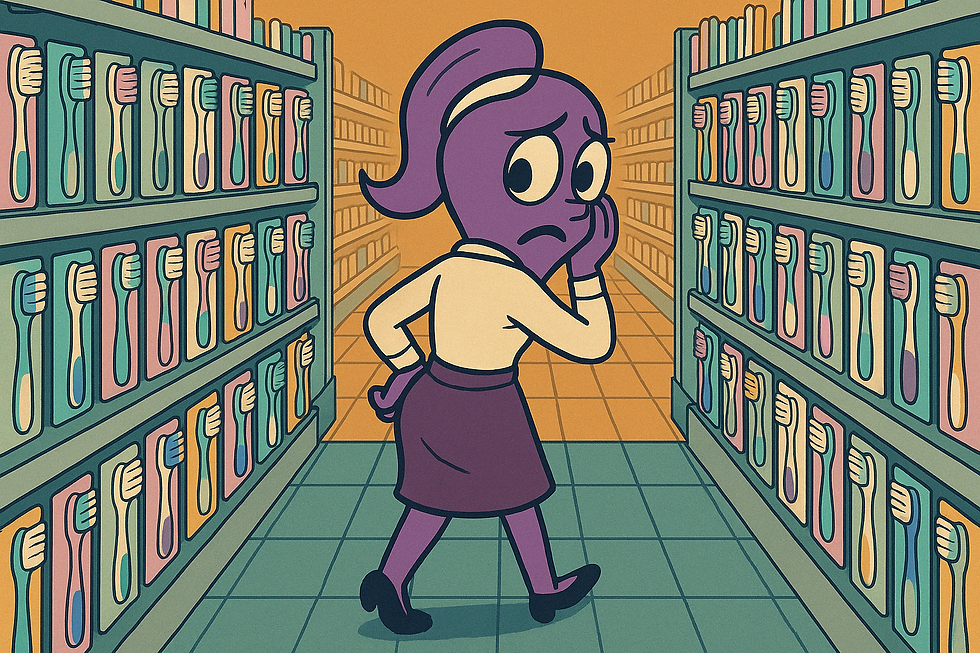
Cosmetic Rinses: Primarily for temporary breath freshening and taste. They don't usually offer long-term therapeutic benefits.
Therapeutic Rinses: Contain active ingredients for a specific effect (OTC or prescription). Key ingredients might include:
Fluoride: Strengthens enamel.
Antiseptics (e.g., CPC, Essential Oils, Chlorhexidine): Help control plaque and gingivitis. (Heads up:Chlorhexidine is usually prescription and needs specific guidance).
Anti-Sensitivity Agents: For reducing tooth sensitivity.
Saliva Substitutes/Moisturizers: For dry mouth relief (like the Xylitol-containing ones I mentioned finding helpful in my blog).
The Alcohol Question: To Burn or Not to Burn?
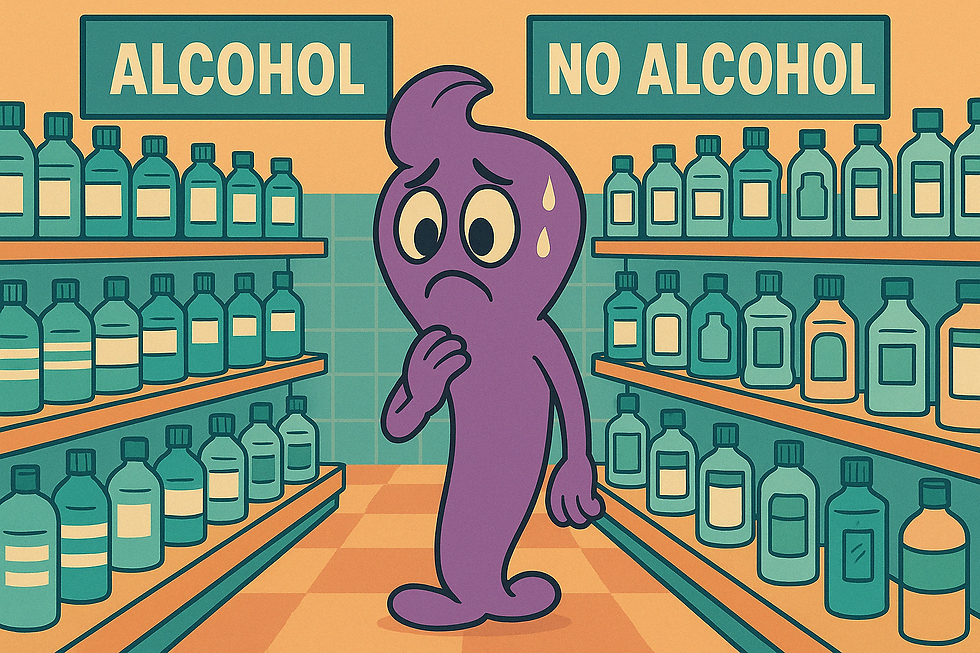
Alcohol-Containing Rinses: Can cause burning and worsen dry mouth.
Alcohol-Free Rinses: Gentler and the preferred choice if you suffer from dry mouth (due to medications, conditions like Sjogren's, etc.). They are just as effective when containing the right active ingredients! (This was crucial for me personally when dealing with medication-induced dry mouth).
Mouthrinse & Your Overall Health: A Holistic Sip
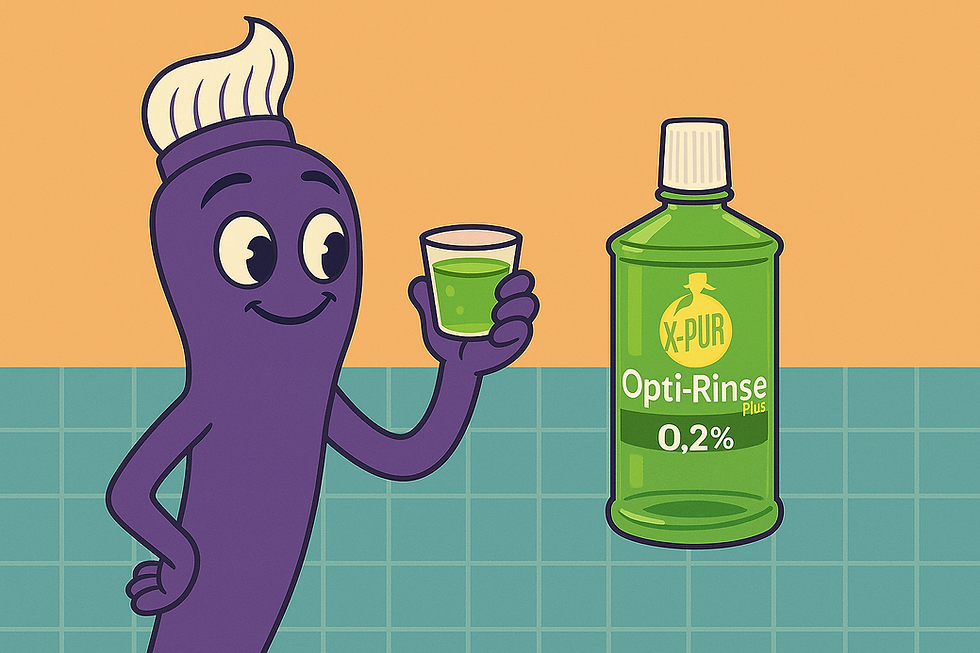
Your mouth connects to your whole body. Consider if rinse fits your health picture:
Dry Mouth (Xerostomia): Alcohol-free is key. A moisturizing rinse can offer comfort and some protection against the increased cavity/gum disease risk.
Gum Disease (Gingivitis/Periodontitis): Therapeutic rinses might be part of a comprehensive treatment plan (including professional care and diligent home care).
High Cavity Risk: A daily fluoride rinse could be a beneficial preventative boost in addition to brushing/flossing.
Post-Dental Procedure: Your dentist might recommend a specific rinse temporarily for healing.
Tips from Your Dental Pals
Timing is Everything (Maybe): As I discussed in my blog, using a fluoride rinse immediately after fluoride toothpaste might wash away concentrated fluoride. Consider waiting 30 mins or using rinse at a different time (like after lunch) if maximizing toothpaste fluoride is your goal. Let's chat about what timing makes sense for you.
Follow Instructions: Use the right amount, swish for the directed time.
Don't Swallow: Spit it out!
It's an ADD-ON, Not a Replacement: Worth repeating forever! Mouthrinse cannot replace brushing and flossing. They are the non-negotiable champions. Rinse is optional.
Choosing Your Swish (Or Choosing to Skip!)
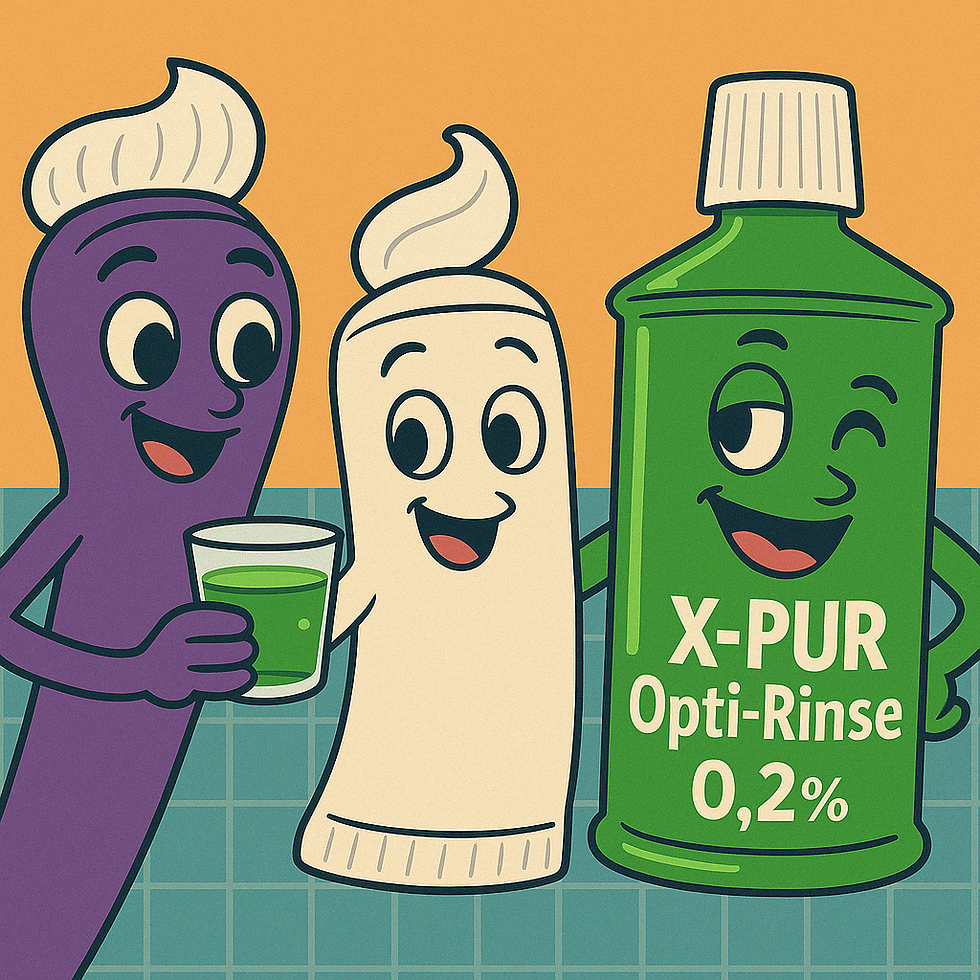
Think about your specific needs. Do you have dry mouth? Are you prone to cavities? Do you just want occasional freshness? Check ingredients, look for seals of approval if applicable, and remember: the goal is to find what works best for your optimal health. Maybe that includes a rinse, maybe it doesn't.
Feeling unsure? That's what I'm here for! Let's chat during your next visit, and we can fine-tune a routine that's perfectly tailored to you.
Keep smiling, whether you swish or not!
Dr. Noor N. AyToghlo



Comments